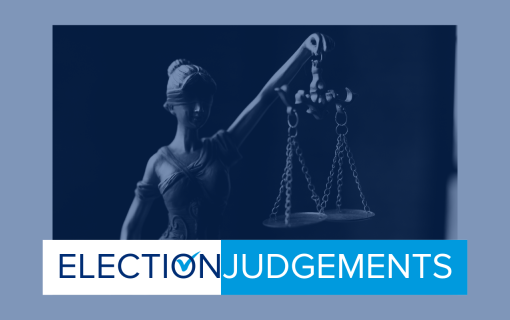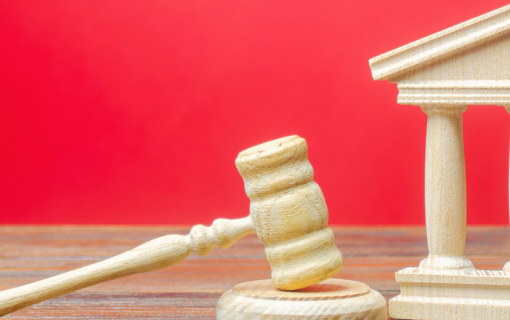Lighting the Way: A Q&A with Sierra Leone’s First Female Electoral Commissioner
Christiana Thorpe, Chief Electoral Commissioner and Chairperson of the National Electoral Commission (NEC) of Sierra Leone, is a trailblazer in election management. As the first woman in charge of elections in the West African nation, she has transformed her country’s electoral system into one that consistently runs credible, valid polls.
As her tenure comes to an end, she speaks to IFES about her legacy and hopes for Sierra Leone.
How did you get into the field of election management?
A very dear colleague, who was then government minister, paid me a visit at home one evening and intimated that my name had come up during a Cabinet meeting about the position. Being a good friend of mine, she was asked to approach me.
At first, I was very reluctant as we discussed the pros and cons but in the interest of women’s empowerment, which we were both championing through our organization the Forum for African Women Educationalists’ (FAWE) Sierra Leone Chapter, I accepted. I took the first oath of office in May 2005 for a five-year tenure. At the end of the tenure, my mandate was renewed and I am now in the last year of this second mandate.
You are the first female ever to be Chief Electoral Commissioner of Sierra Leone. What advice do you have for women around the world who wish to also obtain positions that are traditionally reserved for men?
It is a challenge. We need to accept and empower women in general, but more so to participate meaningfully in national development.
When you took over the National Electoral Commission of Sierra Leone you ensured that only legitimately-cast ballots were counted. Tell us about the changes you implemented to improve the legitimacy of elections in your country.
Before, elections were the prerogative of only the politicians, who played the game as they wished. Today, elections belong to the electorate. This has been achieved through strategic moves that focused on including all stakeholders in the electoral process.
What advice do you have for election commissioners around the world who wish to increase the integrity and transparency of their country’s electoral processes?
Endeavour to win the confidence of the electorate and voters rather than politicians – be they in the ruling party or the opposition.
What are some of the most memorable experiences you have had as Chief Electoral Commissioner?
The best experience has been the restructuring process of the NEC from zero to a professional institution. Literally, bode ose to glass ose, we have gone from a wooden shack in 2005, to a modern, five-story glass building in 2013. We have gone from electoral administration shoddily carried out by civil servants, to priding ourselves on accountability and professionalism within commissioners, management and staff.
Your tenure as Chief Electoral Commissioner is coming to an end. What would you like your legacy to be?
I would like my legacy to be the knowledge that competent women placed in positions of authority can turn things around for the better in a relatively short period.
What are your hopes for Sierra Leone and its democracy?
With continued engagement and sensitization of the electorate, Sierra Leone becomes an icon for democracy in the continent. I hope this continues.









